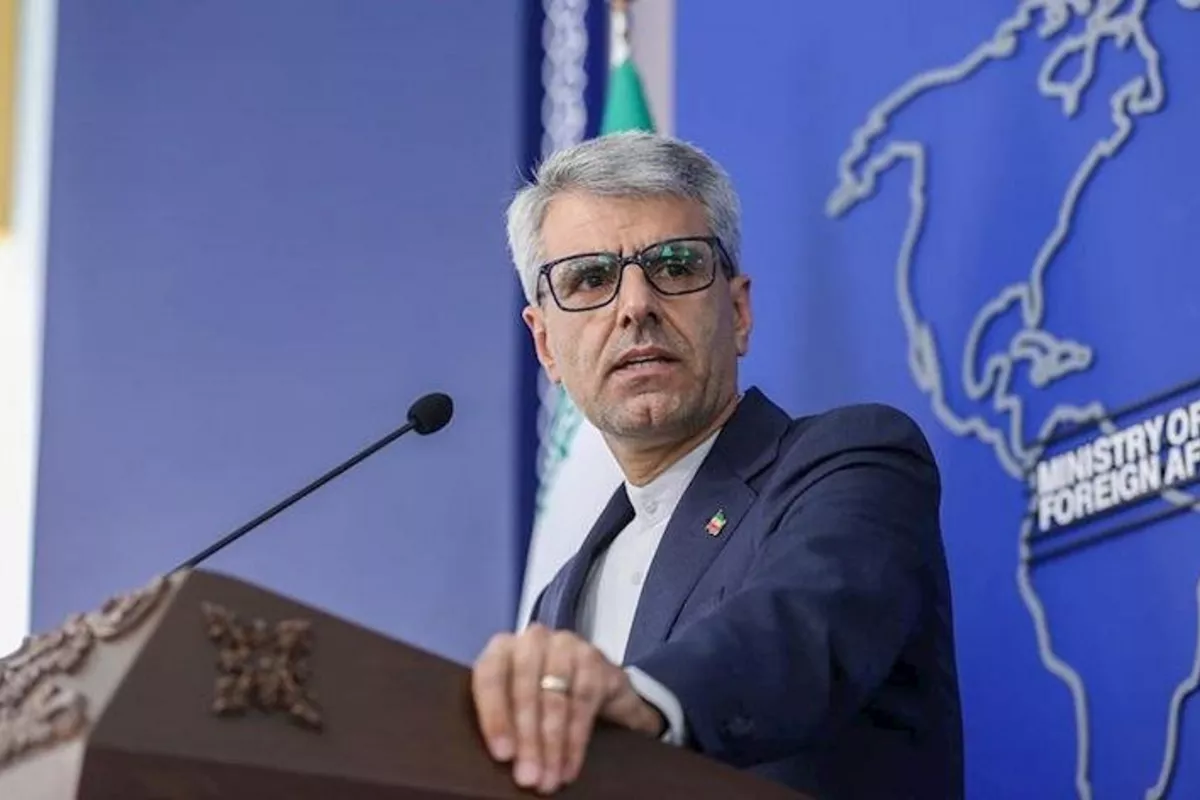
Photo credit: Tehran Times
Iran stated that the Director General of the International Atomic Energy Agency (IAEA), Rafael Grossi, is "fully" aware of the peaceful nature of the country's nuclear energy program and, therefore, should refrain from making "unfounded remarks."
Speaking in an interview with Al Jazeera, Foreign Ministry spokesman Esmaeil Baghaei said Grossi’s previous remarks had paved the way for the acts of aggression by the United States and the Israeli regime against Iran in June, The Caspian Post reports citing Iranian media.
He added that the IAEA chief should avoid expressing baseless opinions about Iran’s nuclear program.
In remarks on Wednesday, Grossi claimed that the agency has recently detected renewed movement at Iran’s nuclear sites, after acknowledging that the country did not appear to be actively enriching uranium.
He added that despite being unable to fully access Iranian nuclear sites, inspectors have not seen any activity via satellite to indicate that the Islamic Republic has accelerated its production of uranium enriched beyond what it had compiled before the 12-day war with Israel in June.
In a confidential report to the IAEA’s Board of Governors on May 31, 2025, the IAEA chief claimed that Iran had failed to report its nuclear activities at three undeclared locations and raised concerns about the country’s stockpile of uranium enriched up to 60% purity.
In response to the IAEA’s report, the Atomic Energy Organization of Iran said the inclusion of some irrelevant issues in the agency’s report contradicts its professionalism, objectivity, and impartiality.
“Sixty-percent uranium enrichment is not prohibited under the [Nuclear Non-Proliferation Treaty] NPT, and Iran’s 60% enrichment and stockpiles are fully under the agency’s monitoring and verification,” the AEOI added.
The AEOI also underlined that all of Iran’s nuclear materials and activities have been “fully declared to and verified by the agency.”
On June 13, Israel launched an unprovoked war against Iran, assassinating many high-ranking military commanders, nuclear scientists, and ordinary civilians.
More than a week later, the United States also entered the war by bombing three Iranian nuclear sites in a grave violation of the United Nations Charter, international law, and the NPT.
Prior to the unprovoked war, Iran had warned the IAEA about any politically-motivated move against the country, saying it could derail Tehran's cooperation with the UN nuclear watchdog.
Iranian officials say Grossi's report against Tehran's nuclear program paved the way for the Israeli aggression on the Islamic Republic.
Late in June, Iran’s Constitutional Council approved a parliamentary bill on suspending cooperation with the IAEA.
The bill cites the violations of Iran’s sovereignty and attacks on its territorial integrity in the wake of the US and Israeli aggression against the country’s peaceful nuclear facilities and its vital interests, and mandates the Iranian government to suspend all cooperation with the IAEA.
Iranian President Masoud Pezeshkian said in a phone with European Council President António Costa on July 9 that Tehran will resume its cooperation with the IAEA if double-standard policies regarding its nuclear program are dropped.
Share on social media